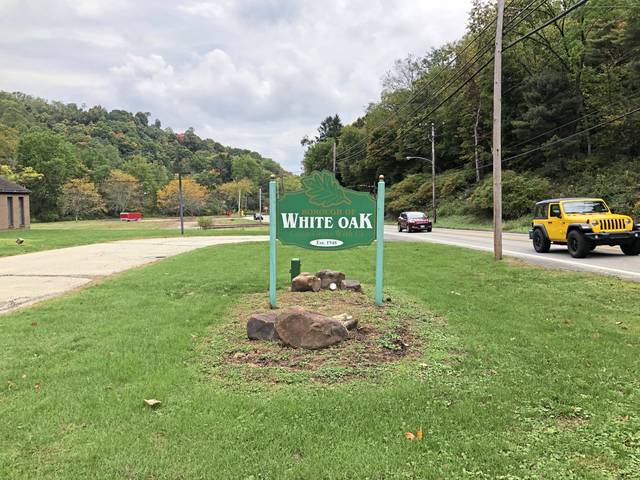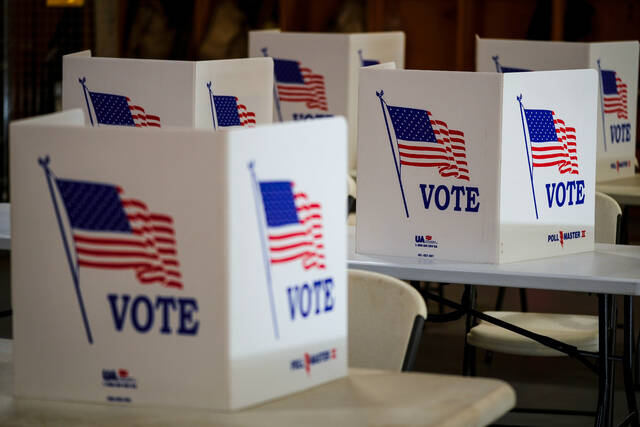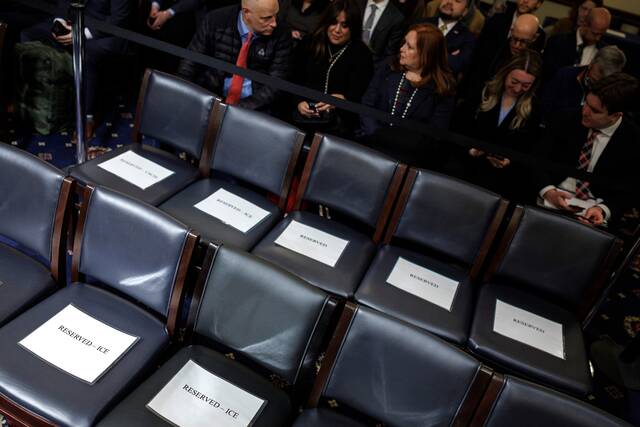The same day that White Oak officials received a letter from the American Civil Liberties Union of Pennsylvania that their political yard sign ordinance is unconstitutional, they agreed to suspend enforcement.
The ordinance, passed in 2000, requires anyone wishing to place a political sign in the borough — even on private property — to pay a $75 deposit. It also prohibits the placement of any political signs on any public space or property.
On Tuesday, the legal director for the ACLU of Pennsylvania sent a letter to White Oak Borough Manager John Palyo and Solicitor Patricia McGrail explaining that the ordinance violates the First Amendment by imposing “unreasonable and content-based restrictions on political expression on private property.”
“Indeed, among a multitude of other signs and lawn displays permitted under the code, the ordinance singles out political signs for more burdensome treatment, i.e., it subjects them to a permit requirement, payment of a fee, and temporal restrictions,” the letter said.
The ordinance forbids the placement of signs more than 30 days prior to Election Day.
Witold Walczak, the ACLU of Pennsylvania legal director, said Tuesday that his organization sends about a half-dozen similar letters to municipalities across the state every election cycle — although the number has decreased since a 2015 U.S. Supreme Court case.
In Reed v. Town of Gilbert, the court struck down an ordinance that made distinctions among ideological signs, political signs and temporary directional signs, and restricted the size, number and length of time they could be displayed based on what they said.
“If I can put up Rudolph, the Great Pumpkin and a [urinating] lawn gnome in my garden, then certainly, I can put up a political yard sign,” Walczak said.
Palyo, who has only been borough manager for 3 1/2 years, said Tuesday afternoon that the borough was suspending enforcement of the yard sign ordinance until a new one can be drafted and approved by council.
“Periodically, we need to review our ordinances — see how legalities have changed and make adjustments to come into line with current law,” Palyo said. “Certainly, we don’t want to discriminate against anyone.”
Walczak wrote in the letter that at least one Democratic candidate was told that no signs could be placed on public property, yet a drive around the borough showed numerous Republican candidate signs.
“The borough cannot selectively allow some signs while forbidding others,” he said.
Palyo said that during his time in the borough, he is not aware that White Oak ever required a private citizen to pay the $75 deposit.
“If it’s interpreted that way through the ordinance, that’s another reason we need to do a revision,” Palyo said.
This election season, Palyo said, four local candidates did pay the fee to allow their signs in the borough.
The deposit, he said, is returned within two weeks of the election and is simply to ensure the candidates remove their signs.
David L. Hudson Jr., a First Amendment fellow with the Freedom Forum Institute, said that municipalities that have passed ordinances similar to White Oak’s often are just trying to cut down on the number of signs in the community.
“They’re trying to prevent visual clutter — to preserve the aesthetics of the community,” Hudson said. “I just don’t think they want them there.”
But he said, limiting political yard signs is content discrimination on political speech.
“It’s supposed to be the speech that’s most protected,” Hudson said.








